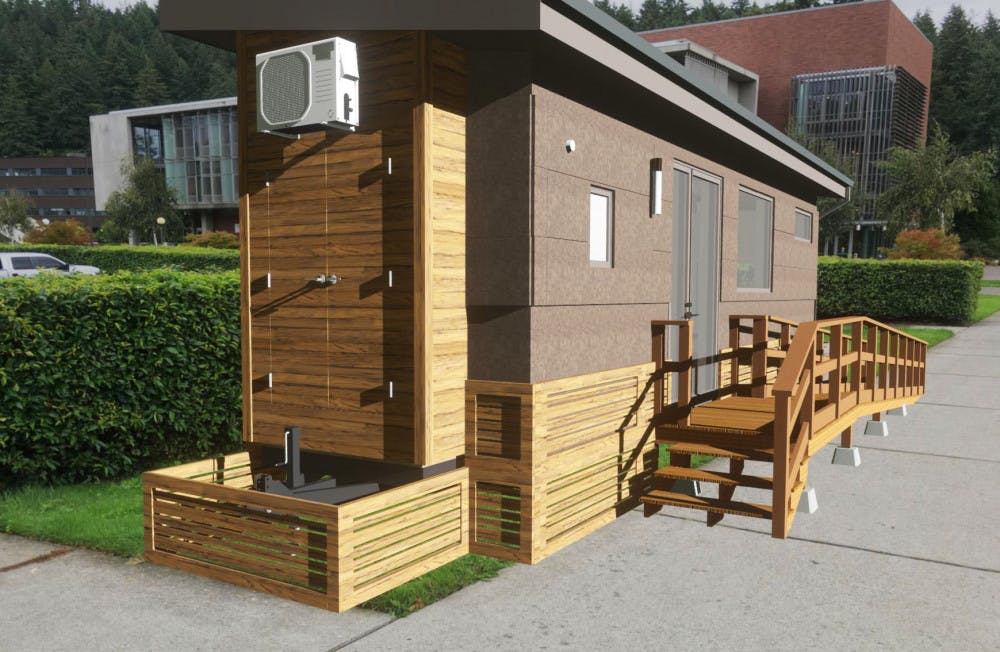
Project ZeNETH, Zero Net Emission Tiny House, is a student organized initiative that began in 2018. The Western owned tiny house will be a net energy sustainable open house that students can go inside to study in or have classes at. The house’s model will eventually be used to build on-campus sustainable housing.
The project was set to be completed this quarter, but completion has been pushed to the fall.
Graduate Kellen Lynch is the project manager of ZeNETH.
“Right now, we hope to have it on campus in fall 2020,” Lynch said. “This project, like any construction project, always takes longer than anticipated.”
The ZeNETH team is made of majors of different disciplines, all sharing their respective skill sets to conduct research that looks into how to develop energy sustainable housing that is still affordable.
The student team has worked over the past two years putting together applications for funding, drawing up building specs, researching experimental building materials and hiring outside contractors to build the tiny-house.
Surprisingly, the “Stay Home, Stay Healthy” order has not hindered progress of the tiny-house as much as the expected administrative delays. Lynch said that the project team has a close relationship with the companies they work with. The team is grateful for these companies going the extra mile to provide the project with resources during the order.
“The project persists despite the quarantine, but our work is very reliant upon companies that are already donating their time to us,” Lynch said. “Asking them to continue donating in the face of layoffs is unreasonable, but amazingly enough they give what they can anyway.”
In 2018, the Front reported on the ZeNETH project when it was just getting off the ground. At that time the initiative was awaiting a response from the SAF Grant Program. The grant, which is now called the Sustainability, Equity & Justice Fund (SEFJ) grant according to the team’s academic advisor professor Imran Sheikh, gave the project the capital it needed to fund the building of the house.
Despite some headaches during the application process, the ZeNETH team was approved for a $57,000 grant to build the energy sustainable house on Western’s campus.
“Despite some frustrating moments, we persevered and were awarded the grant,” Lynch said. “We remain grateful for the entire WWU student body for continually supporting sustainability projects across campus.”
The ZeNETH project has not only been a positive project for the community, but has springboarded the careers of many of its members, ZeNETH alumni Alycia Falter said.
The project has gained several new members over its two years of operations Falter said and given new and exciting opportunities to all.
“Having the ZeNETH team push me in directions that I was not familiar with, but also there to support me when needed gave me the confidence to further pursue my academic career,” Falter said. “Since then, I have taken on roles similar to the ones that I participated in during my time with project ZeNETH because I had the opportunity to see my true potential.”





